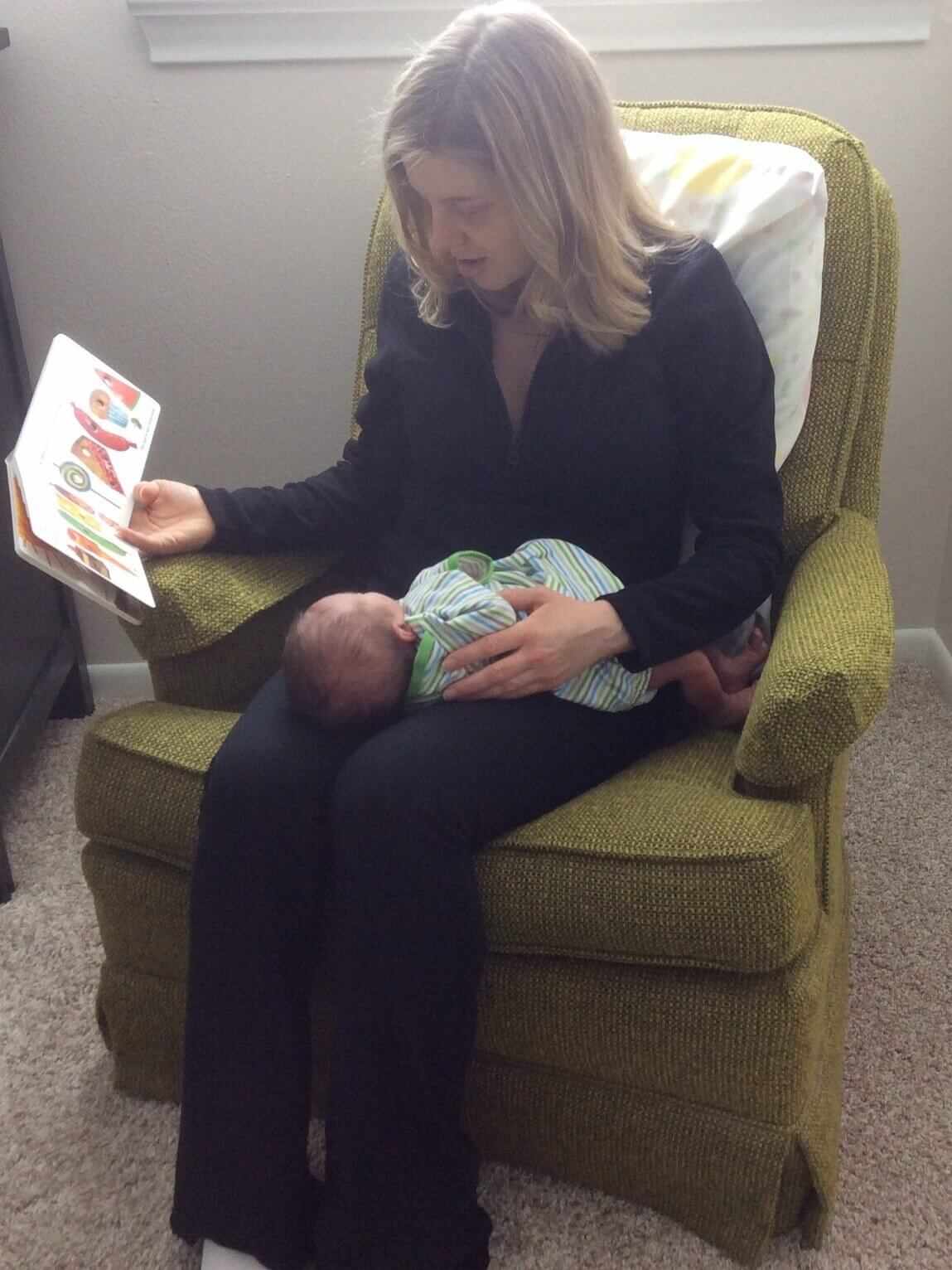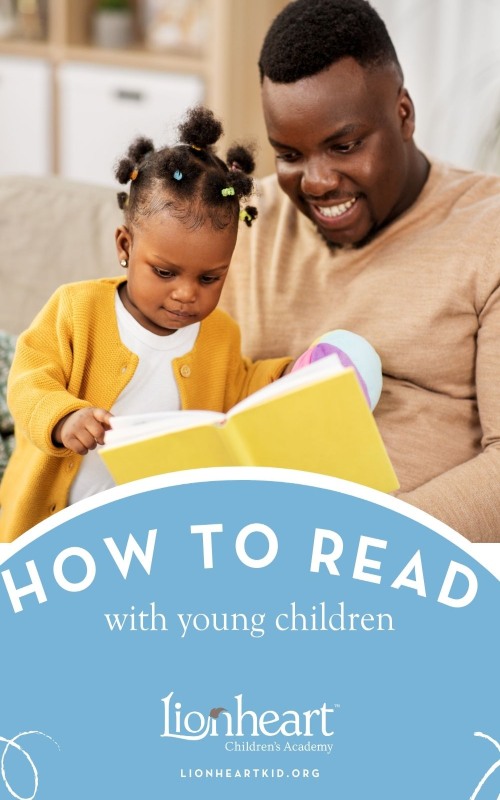How to Read With Littles
One of my favorite childhood memories is reading with my mom every night before bed. We spent time with Anne in Green Gables, explored the magical land of Narnia, and journeyed with Ma, Pa, and Laura through their little houses on the prairie and in the big woods. Reading with my mom helped me form my own love of reading, so of course I was excited to read with my own kids when I became a mom.
Reading with babies and toddlers was confusing for me, though. What books should I read them? Can they understand what is going on? They seem more interested in chewing the book than reading it. We can’t switch books halfway through! The thoughts and questions in my mind were many.
But I knew I was supposed to read – for all the reasons – so I was determined to do it. Case in point, this picture of me reading to my 4-day-old first-born the day after he came home from the hospital. (Just to keep it real, baby number four probably didn’t get his first solo book until he was several months old, so no mom guilt if you had different concerns immediately postpartum!)

We likely know many of the reasons why reading is important – language development, building empathy and general awareness of the world, parental bonding, etc. – so today, in honor of National Reading Month, we want to answer a few questions on the how of reading.
What should we read?
- When you have infants, read whatever you want. Seriously, it can be the latest parenting book, your favorite novel, or the Sunday paper. What matters is the exposure to words and sentence structure and language in general.
- When you have toddlers and preschoolers, read about what interests them or books with relatable themes (i.e., becoming a big sister or the first day of school).
- If you are multi-lingual, read in the language that is most comfortable to you! Just remember to stretch yourself. Reading something challenging for you with your child models to them that it is okay to mess up words and try again!
There are so many books I want to read with my child, but they just want to read the same one. How do I get them to expand their selection?
Reading the same book over and over is ok. Mind-numbing? Yes. But ok. Repetition helps children master language, and the predictability of knowing what’s next in the story gives them a sense of control.
My child is more interested in chewing the book or wants to skip pages. Help!
That’s ok, too! Remember, a lot of reading with a young child is also about bonding. Just the time engaging with you is important, and while they explore the book in all the ways, they are taking ownership of the process.
My youngest is currently in a phase of wanting to read the book backwards, so we are all in – not just reading from the last page to the first, but from the last word to the first. He’s getting exposed to words, handling books, and spending time with his parents. Still a win!
What do I do if my child has no interest in reading?
Read anyway! It’s normal for a preschooler or a toddler who is gaining a lot of motor skills to be more interested in playing than sitting and reading a book. That’s ok. Whether it’s at bedtime or you’re reading while your child plays around you, read when you can!
When my kids start to bicker, I like to read to the one who is most open to it – or to myself if no one is interested in sitting with me. It never ceases to amaze me how one-by-one they will start joining me on the couch or bring their toys to play near my feet while I read. The whole atmosphere of the family changes. While not a magic wand, the power and attraction of reading is significant and, if not universal, highly pervasive.
We hope these tips make reading to your young children a little less daunting. If you have more questions about the why and how of reading, please don’t hesitate to reach out to your child’s teacher or an Academy Director at Lionheart Children’s Academy. They would love to help!
I currently have two school-age readers, and my kids are on Spring Break right now. My heart nearly exploded when I walked into the living room and saw them both curled up with a blanket and book while their younger siblings slept this morning. Hang in there, mama – your work will pay off!
Happy reading!
-Micah Q., Marketing Manager


